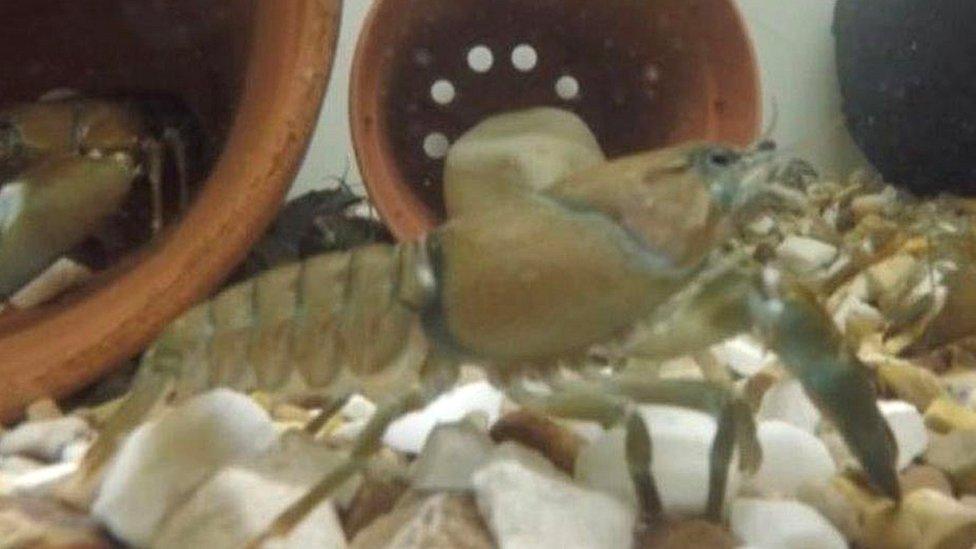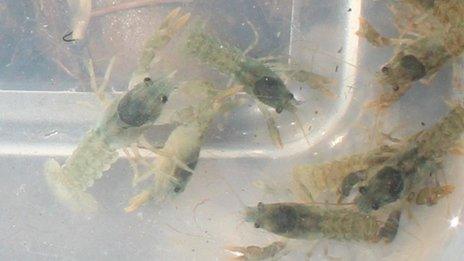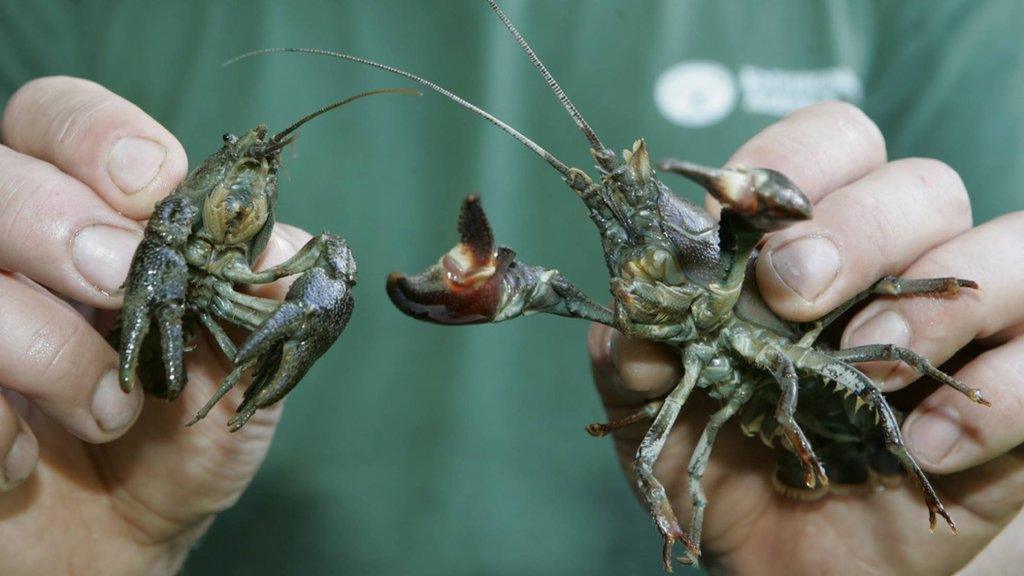Environment Agency: 'Invasive disease kills UK crayfish'
- Published

The native white-clawed crayfish, pictured left, is under threat from the American signal crayfish, right
A disease from an invasive crayfish species is the likely cause of thousands of native deaths.
The Environment Agency said tests will determine whether crayfish plague was responsible for losses at Nailsworth in Gloucestershire, Redlake in Shropshire and Wyre Forest in Worcestershire.
The disease only harms native crayfish and has spread from American signal crayfish in nearby streams.
It may have arrived via water and mud on boots, bike tyres or fishing tackle.
The discoveries of dead crustaceans were made following reports in late August and early September.
The agency is asking visitors to avoid walking or riding through streams in the three areas and to thoroughly clean boots and any other equipment that has been near streams or banks.
More updates on this stories and others in Hereford and Worcester
The native white-clawed crayfish is among the top 10 most endangered species in the UK and is legally protected, the agency said.
"Early indication suggest that crayfish plague is the most likely explanation, we are waiting for confirmation of the test results from CEFAS (Centre for Environment, Fisheries and Aquaculture Science)," a spokesman said.
"This is a species specific disease and presents no risk to human or other animal health.
"Crayfish plague is spread, principally, by American signal crayfish.
"Crayfish plague spores can be spread on damp equipment. Spores can last up to 22 days on fishing tackle, footwear, clothing or sports equipment."
Earlier this month, Cardiff University said it was researching the impact of the invasive and larger American crayfish on the native species, describing the situation as "grave".
It is an offence to release American signal crayfish into the wild.
- Published1 September 2016

- Published2 June 2014

- Published8 May 2014

- Published29 October 2013
